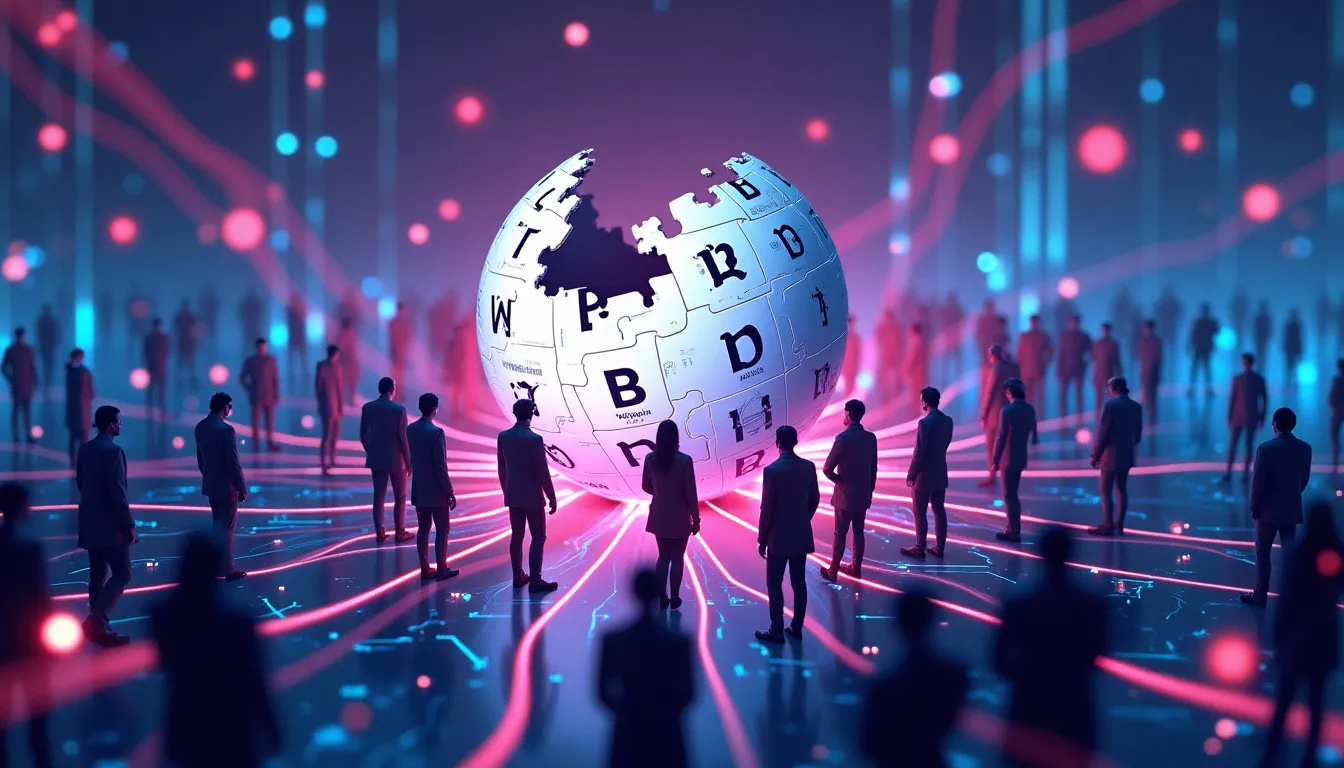Key Highlights
- Wikipedia’s human-curated knowledge is essential for AI development
- The platform’s transparency and verifiability set it apart from AI-generated content
- Proper attribution and financial support are crucial for Wikipedia’s sustainability
As we navigate the increasingly complex landscape of artificial intelligence (AI), it’s easy to overlook the backbone of the internet: human-curated knowledge. Wikipedia, with its vast repository of information, plays a vital role in this ecosystem. With over 300 languages represented, Wikipedia’s volunteer editors ensure that knowledge is not only accurate but also accessible to a global audience. This move reflects broader industry trends, where human-centered approaches are being recognized as essential for trustworthy AI development.
The Importance of Human-Curated Knowledge
Wikipedia’s strength lies in its volunteer editor community, which continually improves and updates the site’s information. This process of discussion, debate, and consensus-building is unique to human interaction and cannot be replicated by current generative AI tools. While AI can synthesize existing knowledge, it lacks the ability to engage in nuanced discussions or discover new information. Wikipedia’s multilingual corpus is a prime example of this, providing a rich source of data for AI models to learn from. By leveraging human knowledge, Wikipedia ensures that its information is not only accurate but also culturally aware.
The Interplay between Wikipedia and AI
The relationship between Wikipedia and AI is symbiotic. AI relies on Wikipedia’s vast knowledge base to train its models, and in return, AI can help Wikipedia’s editors with mundane tasks, freeing them up to focus on more complex tasks. However, this partnership requires responsible use of AI tools. Wikipedia’s editors must ensure that AI is used to support human contributors, not replace them. This means implementing guidelines for AI use and providing transparency into the AI-driven processes. By doing so, Wikipedia can maintain its integrity while still benefiting from AI’s capabilities.
Conclusion and Future Outlook
As Wikipedia approaches its 25th birthday on 15 January 2026, it’s clear that the platform’s importance will only continue to grow. In a world where AI-generated content is becoming increasingly prevalent, Wikipedia’s human-centered approach is a beacon of trustworthiness. By supporting Wikipedia and promoting responsible AI development, we can ensure that the internet remains a valuable resource for generations to come. As Hank Green noted, the future of AI is inextricably linked to human knowledge, and Wikipedia is at the forefront of this effort.
Final Thoughts
In the AI era, Wikipedia’s role is more crucial than ever. By recognizing the value of human-curated knowledge and promoting transparency, we can create a more trustworthy internet. As we look to the future, it’s essential to support Wikipedia and encourage responsible AI development. By doing so, we can ensure that the internet remains a valuable resource for years to come.
Source: Official Link
